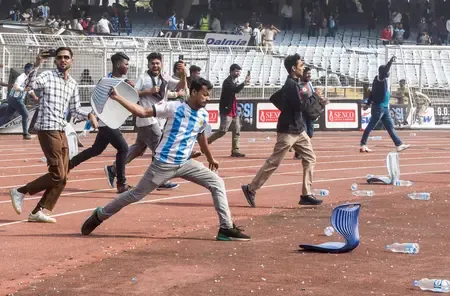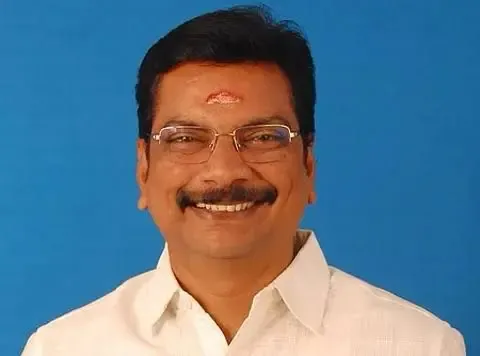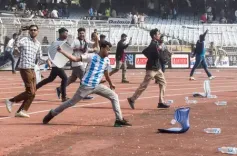Why Did a BSF Trooper Shoot Himself in J&K’s Samba?

Synopsis
Key Takeaways
- BSF trooper allegedly committed suicide in Samba.
- Reasons for the incident are still unknown.
- Previous incidents of soldier suicides have occurred in the region.
- Experts attribute issues to long duty hours and family separation.
- Improved conditions and rapport with locals have been noted.
Jammu, July 7 (NationPress) A member of the Border Security Force (BSF) reportedly took his own life using his service rifle at a forward post located on the International Border (IB) in Jammu and Kashmir's Samba district on Monday.
According to officials, BSF constable Mridul Dass was performing sentry duty at the Border outpost, Malluchak, in the Ramgarh sector of the IB when he allegedly shot himself.
“The reasons behind his tragic decision are currently unclear. Authorities have transported the body to the Community Health Centre in Ramgarh for an autopsy and have initiated inquest proceedings,” officials stated.
On Saturday evening, another soldier sustained a fatal gunshot wound from his service rifle inside a camp in the Rajouri district.
Officials reported that the soldier, who was serving with the 54 Rashtriya Rifles, was on sentry duty when he died at the company headquarters in Solki village, 40 km from Rajouri town.
“His colleagues heard a gunshot from his post and rushed to the scene, only to find him dead. It remains unclear whether his death resulted from suicide or an accidental discharge. Police have commenced inquest proceedings to determine the cause,” officials remarked.
There have been previous incidents of suicide or severe behavioral issues among some Army and security force personnel in the region.
Experts investigating these occurrences have linked such troubling behavioral changes to prolonged separation from families, extended duty hours in challenging environments, limited recreational options, and inadequate command and control frameworks.
Fortunately, these issues have largely been addressed through the establishment of recreational facilities at deployment sites, regular leaves to reconnect with families, and reduced duty hours, all complemented by improved interaction and periodic ‘Darbars’ held by commanding officers with deployed jawans.
As conditions have improved in J&K, security personnel have developed a stronger bond with local communities, engaging in friendly exchanges, assisting civilians during natural disasters, and showing affection to local children, similar to how they would with their own families. The Army and security forces are now perceived as ‘friends’ rather than mere enforcers of law and order. This human connection has helped to mend the division that was deliberately fostered by anti-national elements since the 1990s in Jammu and Kashmir.










